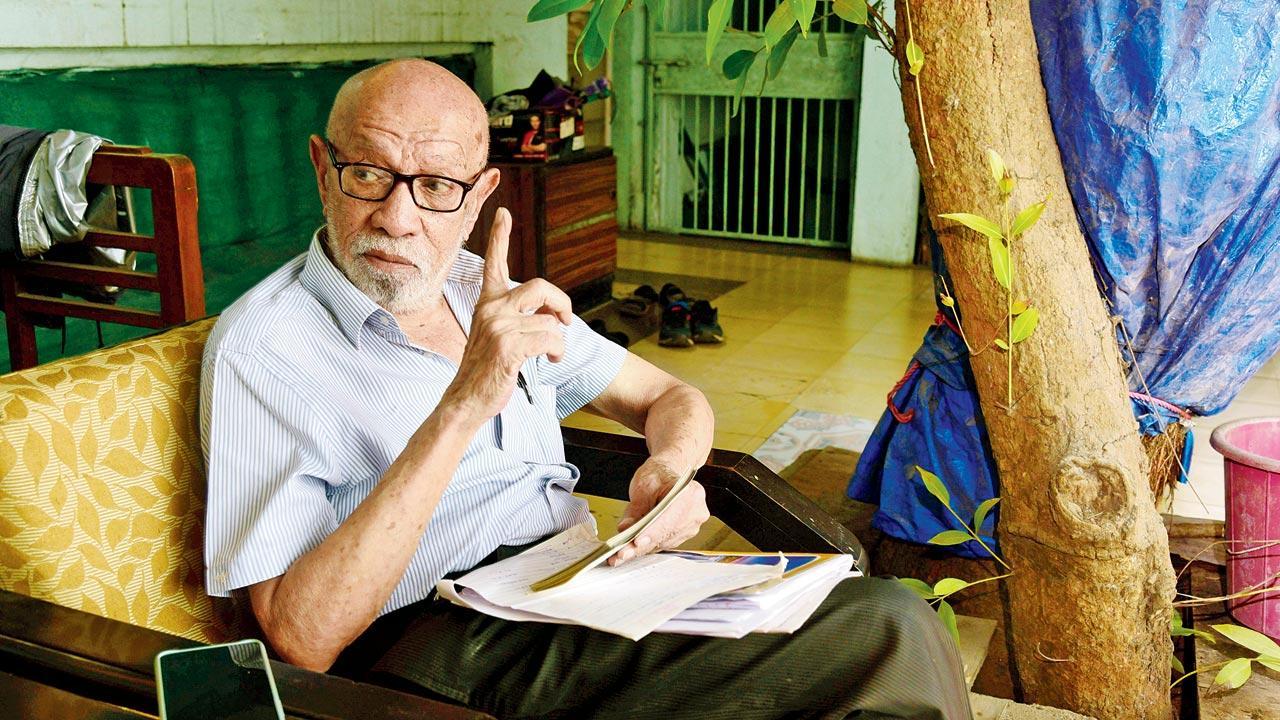Home / Sunday-mid-day / / Article /
50 years of Mumbai DD and tales that shaped the early years of the broadcaster
Updated On: 09 October, 2022 08:00 AM IST | Mumbai | Heena Khandelwal
...and other stories. Now 88, Mumbai Doordarshan’s first staffer regales mid-day with the many successes and little bloopers that made up the initial years of the public service broadcaster

Yakub Sayed worked at Doordarshan from the time its Mumbai office was started in 1972 till his retirement in 1992, when he left the office as the director of DD Bangla. Pics/Atul Kamble
It was the year 1980. Yakub Sayed, then assistant director at Mumbai Doordarshan, now called DD Sahyadri, received a phone call. It was to inform him that actress Nargis Dutt, who was in New York for medical treatment after being diagnosed with pancreatic cancer, had passed away. He informed his director, and a call was made to the I&B Ministry, which then connected with the Prime Minister’s office. “We were informed that PM Indira Gandhi is on her way to Bombay and somebody should go to the airport to let her know the news. I was given this task. I went along with my cameraman. Just as she [PM Gandhi] began descending the airstair, I asked the cameraman to start shooting. When I informed Mrs Gandhi, she said that she was deeply saddened at the news. But it was a small reaction. To get more, I decided to pay a visit to Dev Anand’s office, which was in the vicinity. After I had broken the news to him, he offered us a long byte. To make it a whole package, I decided to pay a visit to Sunil Dutt’s home, hoping to get a reaction from the househelps and drivers. But once I reached there, I saw Sanjay Dutt having tea with his friends, laughing. I asked the cameraman to stay put and decided to ask him about his mother and he said, she is doing better,” Sayed tells mid-day between laughs.
By the time he had reached DD’s Worli office, everyone had heard what had happened. “I behaved like I didn’t know. They told me I must pay Mrs Gandhi a visit and confess the blunder because she had already offered her condolences at a meeting that day. I refused, saying, I would rather resign than tell her that… she was known to have a temper. Someone else was given the task and I am sure a few people lost their jobs that day.”



